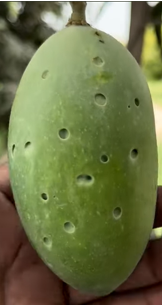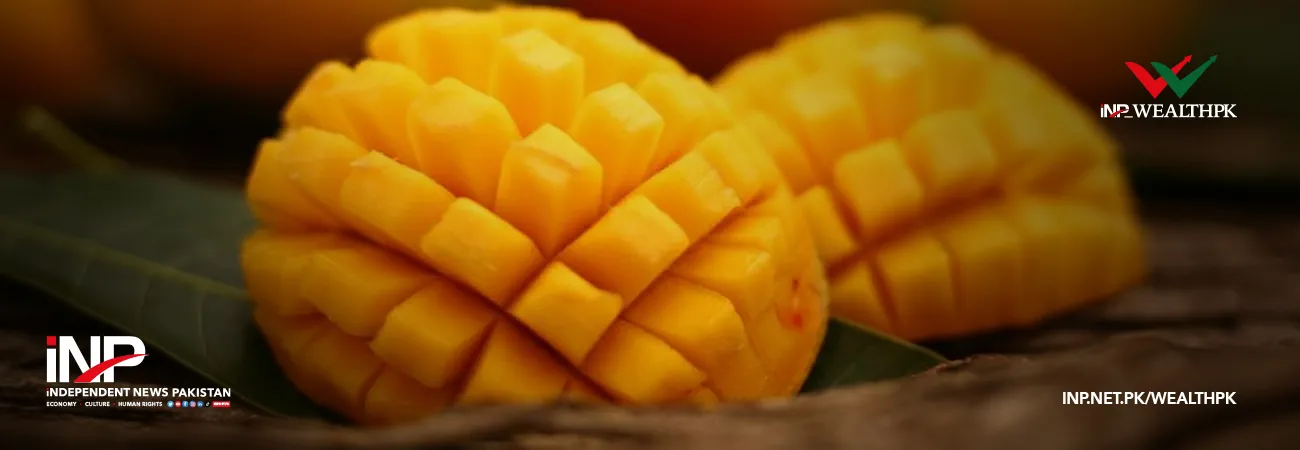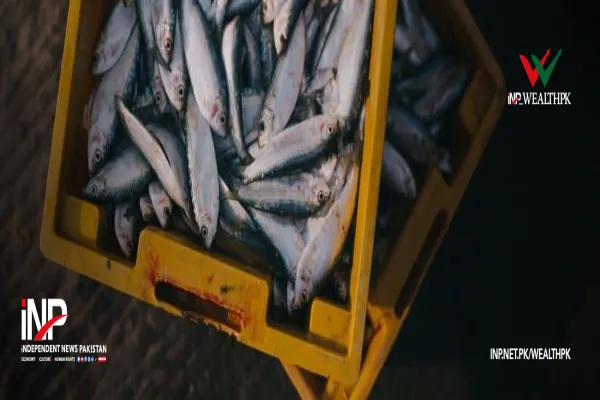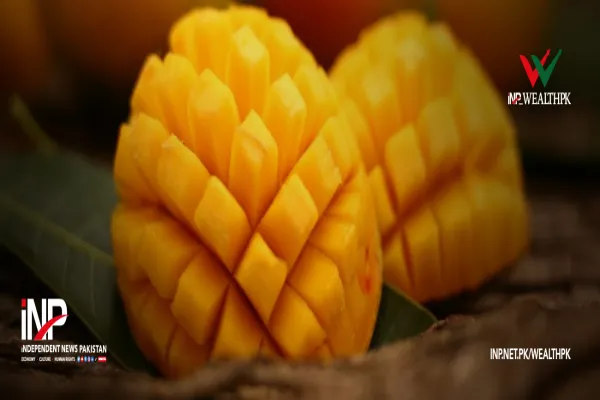i INP-WEALTHPK
Azeem Ahmed Khan
Pakistan’s prized mangoes face declining quality as climate change triggers physiological disorders in the fruit, leaving depressions and holes that exporters reject, a leading researcher has warned.

“Mango production was badly affected this year due to depressions and holes in the fruit caused by climate change,” said Abdul Ghaffar Grewal, former director of the Mango Research Institute, Multan.
Talking to Wealth Pakistan, he said: “Our top variety, Sufaid Chaunsa, has been hit the most. These depressions are not due to insects or diseases; they are physiological disorders.”
The problem, Grewal explained, stems from temperature fluctuations that disturb the hormonal balance controlling fruit growth and development. “This disorder manifests as clean, green depressions in the mango skin, with no signs of infection, bruising, or insect attack. It is purely a physiological abnormality,” he said.
Grewal noted that as mangoes increase in size, the depressions become deeper.
In 2022, Pakistan saw the first serious climate-related damage. The March 2022 heatwave pushed temperatures to 40 degrees Celsius, drying up flowers, causing fruit drop, and distorting growth. The Sindhri variety developed curved shapes, drawing comparisons to a hockey stick rather than a mango.
“By 2025, the impact has become far more severe, with deep, widespread depressions, particularly in Sufaid Chaunsa,” Grewal said.
Growers in southern Punjab, especially Rahim Yar Khan and Jalalpur, faced heavy losses as exporters rejected affected mangoes, forcing farmers to sell them in local markets at lower prices, Grewal said. “Even large, healthy-looking fruit was discarded if it had just two or three holes. This has caused significant financial damage.”
Other varieties, including Kala Chaunsa, Anwar Ratol, Ratol No. 12, and Sammar Bahisht Chaunsa, also showed similar symptoms, though to a lesser degree. “No variety has survived completely. We have seen these disorders across Punjab, with variations in severity,” he said.
According to Grewal, there is no direct cure for such physiological disorders, but better orchard management can help. “Improving zinc and potash application enables plants to withstand temperature extremes and reduces hormonal imbalances. With better nutrient management, farmers can minimise these effects next season,” he said.
He added that the abnormalities underline a larger challenge. “Climate change disrupts the very hormones that control growth and development, and this is why we are seeing new physiological disorders in mango fruit.”
Grewal has urged the government and industry to support farmers in adapting to climate stress. “Pakistan’s mango is a symbol of national pride and a vital export commodity. But unless we invest in research on climate-resilient varieties, improved nutrition practices, and modern orchard management, our mango industry will continue to suffer,” he warned.
Credit: INP-WealthPk









